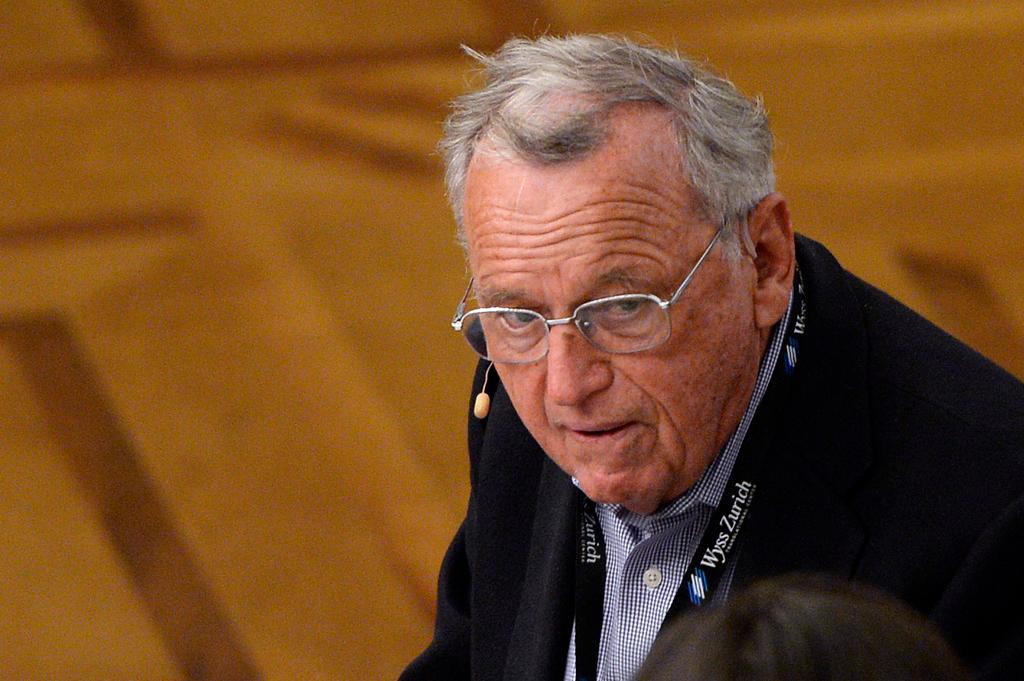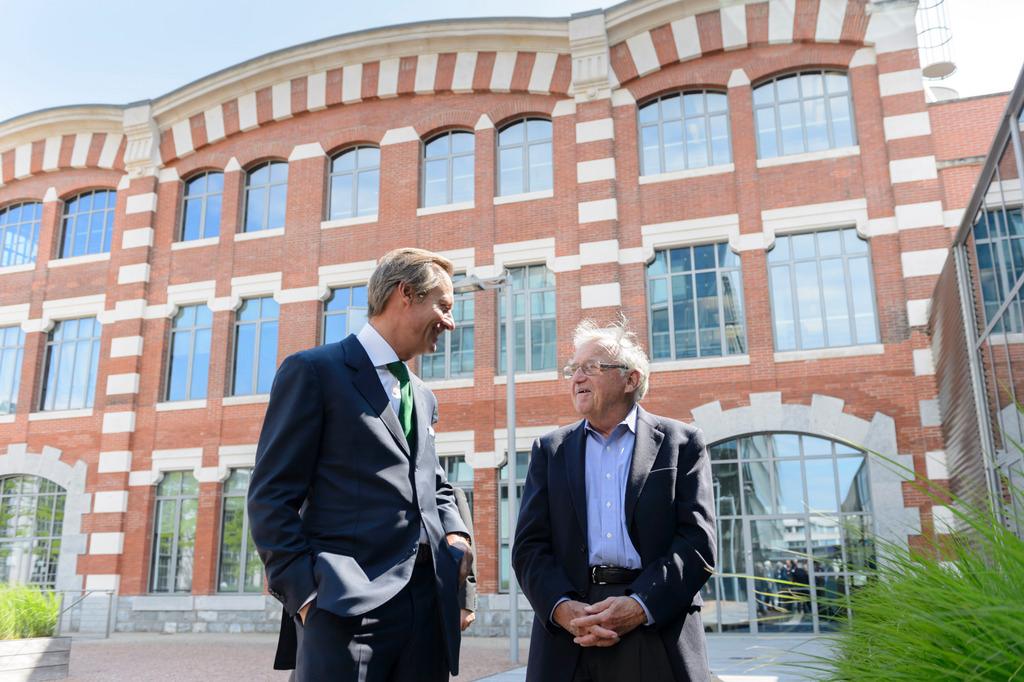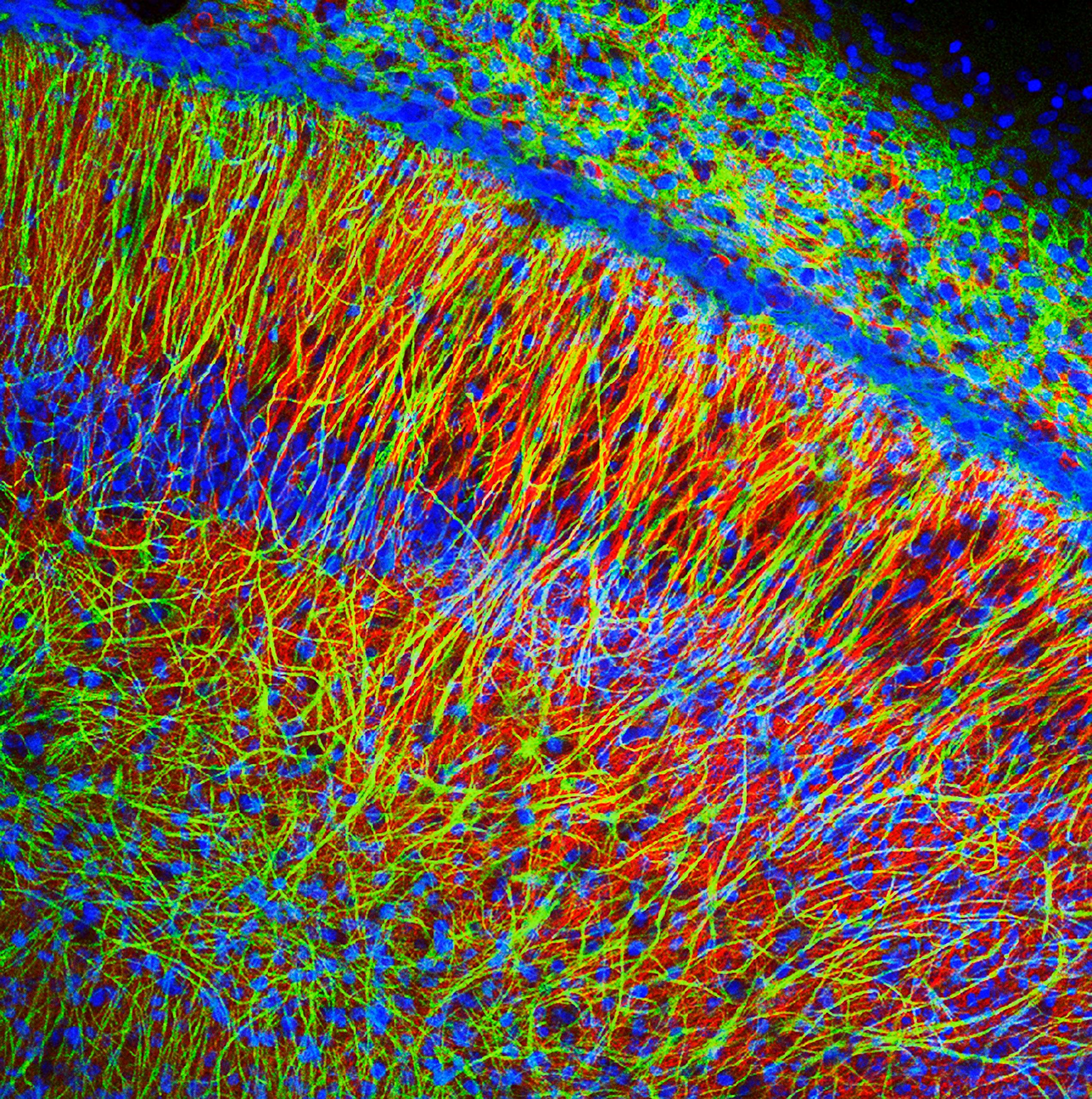Philanthropic investors kick-start start-ups

Swiss medtech firm MindMaze has entered the big league after its tie-up with the Indian Hinduja Group. The company’s new $1 billion (CHF990 million) valuation might never have been possible without the support of industrialists turned philanthropists.
Using MindMaze goggles, stroke patients can re-learn movements via virtual reality simulations of everyday scenarios. The company wants to expand into other healthcare areas, such as treating amputee patients or those with phantom pain. And it sees avenues of opportunity in safety and simulation training for the automobile and defence industries.
MindMaze is a poster child for the philanthropic start-up investment movement that is gathering steam in Switzerland. People who have made multiple millions, if not billions, from their own successful business ventures are now prepared to give away part of their fortunes to foster the next generation of innovators. In many cases, they do not expect a financial return on their investments.
Thanks in good part to this type of seed capital, MindMaze was able to get off the ground. “The merit of offering funding without taking a stake in the start-up is that it frees the company to concentrate on its ideas,” MindMaze founder and Chief Executive Tej Tadi told swissinfo.ch.
“We are not a typical company, we don’t have just one product. It was difficult for early investors to see how we would fit into their portfolios. We were looking for long-term investors, not those who wanted a quick exit in two years’ time.”
Venture Kick
The Federal Institute of Technology Zurich (ETHZ) spin-off got off the ground as a commercial enterprise thanks to CHF30,000 funding from the Venture Kick foundation. MindMaze is one of 403 start-ups to have received a slice of the CHF16 million in funding issued since Venture Kick started in 2007.
Behind Venture Kick sits a variety of foundations set up by wealthy Swiss industrialists, such as Hansjörg Wyss (founder of the medical device firm Synthes USA), André Hoffman (whose great-grandfather founded pharmaceutical giant Roche) and Martin Haefner (whose father founded the car dealership AMAG).
“I have an unbelievably privileged life, and I am very aware of this,” Hoffman wrote in the 2014 Venture Kick annual report. “I often think of my great-grandfather who founded his little start-up that became a global corporation. If there is an opportunity to create a Roche of tomorrow from one of today’s start-ups, then we have to help.”
Hansjörg Wyss has also ploughed multiple millions of his private wealth into two scientific research centres in Switzerland. The philanthropy of both Wyss and Swiss biotech billionaire Ernesto Bertarelli helped launch the CHF100 million Campus Biotech in Geneva last year.
Wyss followed this up with the CHF120 million Wyss Translational Center in Zurich in December. This collaboration between ETHZ and the University of Zurich aims to prevent promising medical research projects fall into the so-called “valley of death” between start-up and market entry stage. This could benefit both start-ups and patients.
“If life has made you make a fortune you must give it back to society,” Wyss said at the centre’s opening ceremony.
MassChallenge
Large corporations have also been induced to give money to another philanthropic start-up venture, MassChallenge, which has just started up operations in Switzerland. Start-ups from around the world have been invited to apply for grants, free mentoring and office space – with no strings attached, such as repayments or giving donators a stake in companies.
Food manufacturer Nestlé, the engineering Bühler Group and food flavouring and fragrance specialists Givaudan have signed onto the scheme. Mass Challenge founder and CEO John Harthorne described their contribution as “enlightened self-interest”.
“When we all think there is a fixed amount of money on the planet and we are all fighting over slices of the same pie, there is a significant amount of loss and there is no gain,” he told swissinfo.ch. “There is recognition that everyone wins if we work together to increase the size of the pie.”
“Companies gain a lot, not in the form of equity or revenue sharing or having a grab on something, but by learning about their industry and innovative trends which will help them positon themselves more intelligently within their own markets.”

In compliance with the JTI standards
More: SWI swissinfo.ch certified by the Journalism Trust Initiative













You can find an overview of ongoing debates with our journalists here . Please join us!
If you want to start a conversation about a topic raised in this article or want to report factual errors, email us at english@swissinfo.ch.